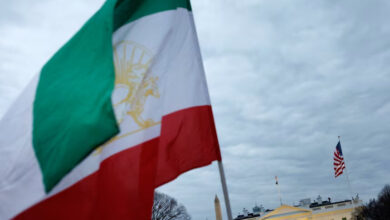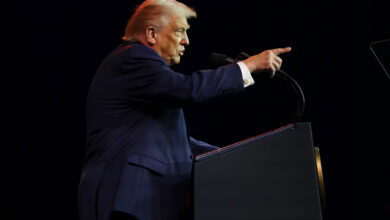
Iran must drop its demands to have thousands of centrifuges used to enrich uranium if it wants a lasting deal with major powers over its disputed nuclear programme, France's foreign minister said on Tuesday.
Highlighting a big gap in negotiating positions, Laurent Fabius told French radio that Iran should only have a few hundred centrifuges, machines that spin at supersonic speed to increase the concentration of the fissile isotope.
Iran – which says its nuclear programme is peaceful and rejects accusations it has been seeking to develop a nuclear weapons capability – now has around 19,000 centrifuges installed, of which roughly 10,000 are operating, according to the U.N. nuclear agency. It says it needs to expand its capacity to fuel planned nuclear power plants.
Paris has long held out for strict terms in the negotiations, in which it and Britain, China, Germany, Russia and the United States are contemplating an easing of strict economic sanctions if Iran can dispel their concerns. U.S. and Iranian officials are holding talks in Geneva on Monday and Tuesday this week to discuss ways of breaking a deadlock which has raised the likelihood that a self-imposed July 20 deadline will lapse without an accord.
Failure of the broader negotiating process could raise the possibility of further sanctions and increase the danger of military action by Israel against Iranian nuclear instillations.
French officials are due to meet Iranian negotiators on Wednesday in Geneva before the six world powers meet to assess their strategy ahead of the next round of official negotiations with Iran beginning in Vienna on June 16.
"We are still hitting a wall on one absolutely fundamental point which is the number of centrifuges which allow enrichment," Fabius told France Inter radio.
"We say that there can be a few hundred centrifuges, but the Iranians want thousands so we're not in the same framework," he said. It was not immediately clear whether he was spelling out the French position, or that of the six powers.
Enriched uranium can be used to generate nuclear power, which is Iran's stated goal, but can also provide the fissile core of a nuclear warhead if refined to high degree, which the West fears may be Tehran's ultimate aim.
A senior Iranian official said on Monday talks could be extended for another six months if no deal is reached by a July 20 deadline.
A November agreement – under which Iran suspended some nuclear activities in exchange for limited sanctions relief – allowed for a six-month extension if more time were needed for a settlement. An extension would allow up to half a year more for limited sanctions relief and restraints on Iranian nuclear work.
"Obviously, if the Iranians maintain their position, what is the purpose of having thousands of centrifuges if we're not heading towards an atomic bomb?," Fabius said. "So the question that will be asked in the coming weeks is whether Iran is really ready to accept to give up the atomic bomb or not."




